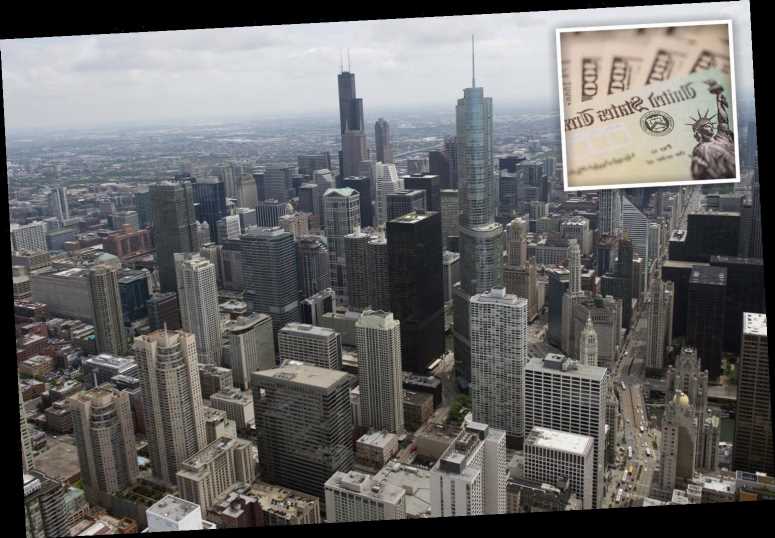CHICAGO lawmakers are gearing up to use their share of the $1.9 trillion covid relief bill by distributing monthly $500 checks to its constituents.
Local legislators are toying with the trailblazing proposal to create a universal basic income for their low-income residents, inspired by the extra-income scheme launched in Gary, Indiana.
Although Chicago's plans are still in the pipework, lawmakers want to use $30 million of the $1.8 billion federal relief funds allotted to the city, to launch the pilot program.
President Joe Biden signed the $1.9 trillion relief bill in the Oval Office yesterday, ahead of the $1,400 checks being sent out to Americans.
He and House Speaker Nancy Pelosi have continued to assure the public, "Help is here", after they both signed the bill this week.
The effort to kickstart economic prosperity is being spearheaded by Alderman Gilbert Villegas, the Chairman of the City Council’s Committee on Economic and Capital Development.
"Today we are asking that less than 2 percent of the estimated $1.9 billion being allocated to the City of Chicago from the American Rescue Plan be used to support Chicago's most vulnerable residents," he said.
Villegas and his allies, aldermen Sophia King and Maria Hadden, want to trial the plan with 5,000 of Chicago's neediest families by sending them a booster of $500 a month.
A similar scheme piloted in Los Angeles targeted 500 households run by single mothers, and Chicago could follow suit.
The proposed scheme could use a similar qualifying method or opt to identify households with certain income limits, according to Villegas.
It is a cause that is also close to his heart – as he said a universal basic income would have been "life-changing" for his mother, who struggled after the death of his father when he was eight years old.
"If you take a look at where most of the need would be, it would probably fall in the Black and Brown communities for sure. I mean — this pandemic has been an equal opportunity destroyer," he said.
"60% of African Americans and 72% of Latinos have had to dip into their savings. 35% of white families have had to do the same to try to survive during this pandemic," Villegas continued.
A universal basic income program was launched in Stockton in 2019, providing 125 individuals a $500 a moth payment for two years.
Research found it had a significant positive impact on mental health and helped full time employment grow from 28% to 40%.
At a Chicago City Council meeting on Thursday, former mayor of Stockton and a pioneer of the proposal, Michael Tubbs, announced his support of the "New Deal moment" by referring to the actions offormer President Franklin Delano Roosevelt.
He said Roosevelt's reaction to a pandemic and the Great Depression was successful as it required him to start "thinking differently about our economy", but emphasized the need for modernity.
"Unemployment was a bold and innovative and radical idea in 1935. It is now 2021. Our pandemic response can’t be based on 1935 models. … I don’t want to live in a country with a 1935 social safety net," Tubbs said.
At the end of the City Council meeting, the pilot program had the support of an additional 15 aldermen.
In an unrelated press conference this week, Chicago Mayor Lori Lightfoot, at an unrelated press conference today, announced the city is waiting on guidance from the Treasury on how the funding can be used.
"My impression is the money will come through specific grants with specific requirements on how the money can be spent," she said.
But she warned, "This is not $1.9 trillion of a slush fund we can use every way we can."
Source: Read Full Article





